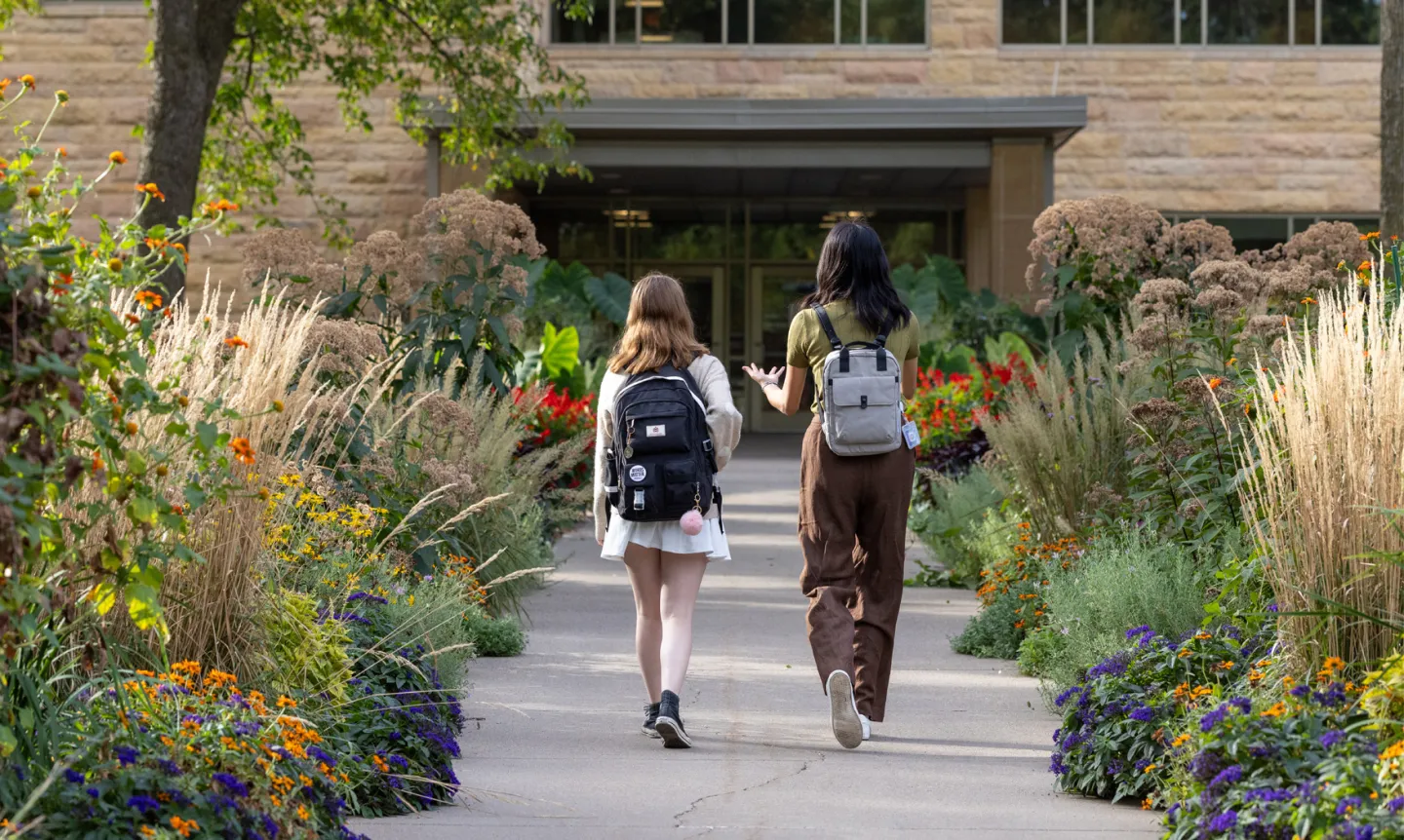
St. Catherine University recently received two grants from the Minnesota Office of Higher Education (OHE) aimed at supporting students and fostering persistence, especially among students from backgrounds traditionally underrepresented in higher education.
Intervention for College Attendance Program
St. Catherine University was one of 20 organizations statewide to be named a 2025 Intervention for College Attendance Program (ICAP) grant recipient by the Minnesota Office of Higher Education. ICAP grants provide funding for programs that support college attendance of historically underserved students and bridge the gap between high school and postsecondary education. The University received a total of $55,697 for fiscal years 2026 and 2027.
"We are overjoyed at receiving the ICAP grant,” said Maddie Jarmola, strategic director of student success and retention. “With this funding, we are to enhance our summer bridge programming efforts that benefit our most academically at risk students, and create an experience that truly welcomes them into our Katie community. This funding will allow us to make great strides in retaining students."
The University’s $55,697 award will support the Katies Embark Summer Bridge program and an embedded tutoring initiative. Katies Embark helps prepare historically underserved first-year College for Women students during their transition to college, providing academic enrichment and fostering a sense of belonging. The program includes a two-day outdoor experience followed by on-campus sessions and conversations with peer mentors and staff to help navigate campus life.
The embedded tutoring initiative places peer tutors directly in the classroom, where they collaborate with faculty and build connections with students to enhance engagement and academic success. The program aims specifically to reduce DFW rates (the percentage of students who get a D or F grade or withdraw from a course) in some of the most challenging gateway courses, including Chemistry for the Health Sciences, Anatomy and Physiology, and Written Communication for College.
"By embedding tutoring support directly into our first-year courses, we're ensuring that students have the academic foundation to succeed in demanding prerequisites,” said Stacy Dean, assistant vice president for learning resources and academic success, who will be leading the embedded tutoring initiative. “And by partnering with faculty in pre-health courses, we're not only supporting individual dreams but strategically investing in the future nurses and healthcare professionals who will serve our state's most critical needs."
Emergency Assistance for Postsecondary Students
The MN OHE has also awarded Emergency Assistance for Postsecondary Students (EAPS) grant funds to St. Catherine University. The total award of $150,000 ($75,000 for each of the next two years) provides emergency aid for students facing unexpected financial crises. EAPS funds are available to private, nonprofit, and tribal colleges and universities in order to foster postsecondary attendance and retention for students from low-income backgrounds. The funds are available to meet student needs, such as housing, food, and transportation, that would otherwise prevent students from completing their term.
St. Kate’s emergency grant assistance program is administered by Access and Success, which works to connect students to the support they need to persist and succeed in their education.
“We are grateful and excited to receive these essential funds for our students who encounter financial emergencies and need help with their basic needs,” said Beth Hamer, director of Access and Success. “We know that reducing financial stress boosts academic outcomes, as evidenced by the persistence and completion rates of previous grant recipients. Access and Success social workers follow a model of relationships plus resources equals retention. The EAPS funds supplement our team's efforts to support students and alleviate their burdens, which helps them thrive in the classroom.”